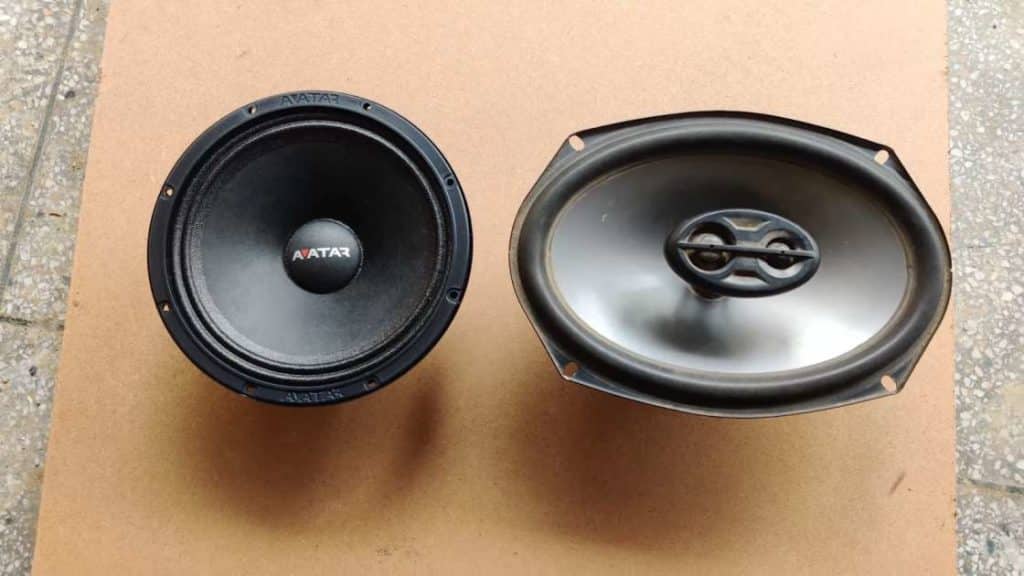
This is a typical question that many car owners ask themselves. If you are thinking about installing new speakers in your car, you may be wondering if they need to be waterproof.
We’ll answer the question, “Are car speakers water-resistant?” in this blog article. We will discuss the different types of speakers and whether or not they need to be waterproof. In addition, we will offer advice on how to best take care of your speakers.
- Are car speakers waterproof?
- How to Protect Car Speakers from Water?
- Use Silicone Sealant to protect your speaker:
- Use Speaker Covers to protect your car speakers:
- Keep your car’s interior dry:
- Store Your Speakers Inside:
- Use a Dehumidifier to protect your car speakers:
- Don’t use your speakers while it’s raining:
- Cleaning and maintaining your door seals:
- Use High-Quality Speakers:
- Use Foam Baffles to protect your car speakers:
- Use A Moisture Barrier:
- Use the aluminum sheet to protect your car speakers from water damage:
- Use cabin filter:
- Use MDX or MDF:
- Use Rubber Speaker Protectors:
- Adding plastic envelopes and waterproof enclosures for your products:
- Add A Dura Seal:
- Use Polymer Protectant:
- Use Spar Varnish Coats:
- Use Xtc Rain Hats:
- Use High Gloss Polymer:
- Do waterproof speakers make music sound good?
- What makes a speaker waterproof?
- Is it okay to use waterproof speakers in my car?
- FAQ
Are car speakers waterproof?
No, car speakers are not waterproof. Water can damage the speaker’s cone and surround, causing the speaker to sound distorted or fail. If your car has a factory-installed audio system, it is best to avoid exposing the speakers to water.
Aftermarket car speakers are generally more resistant to water damage than factory-installed speakers, but they are not waterproof. Make sure you read the manufacturer’s instructions from start to finish before trying to install any aftermarket car speakers.
It is essential to keep your car speakers dry, especially if you live in an area where it rains frequently. If your car gets wet, dry it off as soon as possible. Water can cause rust and corrosion, damaging your car’s speaker system.
If you are looking for waterproof car speakers, there are a few options available.
Marine speakers:
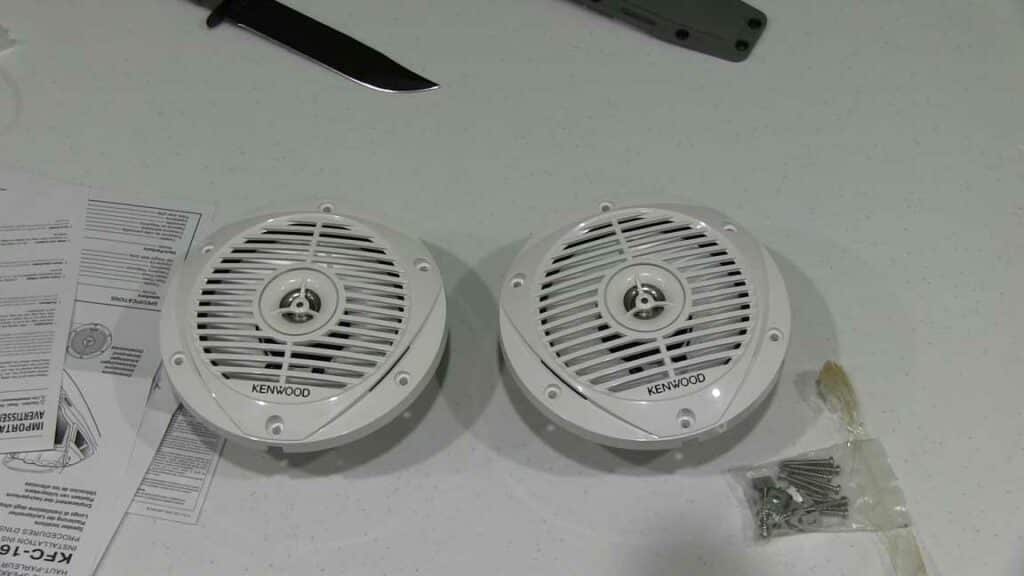
These speakers will not falter in environmental conditions, whether saltwater or prolonged sun exposure. Marine speakers are a good choice if you live near the ocean or often take your car to the beach.
Weather-resistant speakers:
These speakers are designed to withstand exposure to the elements, but they are not waterproof. Weather-resistant speakers are a good choice if you live in an area with high humidity or want to use your speakers outdoors.
Waterproof speakers:
These speakers are designed to be completely waterproof. Waterproof speakers are a good choice if you live in an area with frequent rain storms or if you want to use your speakers near a pool.
No matter which speaker you choose, read the manufacturer’s instructions carefully before installing them in your car.
How to Protect Car Speakers from Water?
It is no secret that car speakers are one of the essential parts of any car audio system. They are responsible for producing a clear, crisp sound that can make any journey more enjoyable. However, they are also very vulnerable to damage from water.
Water can enter the speaker system in several ways. It can seep through the speaker grilles or any cracks or openings in the car body.
Once water enters the system, it can cause the speaker cones to rust or the electrical components to corrode. This can lead to a loss of sound quality or even a complete system failure.
There are a few simple steps that can be taken to protect car speakers from water damage.
Use Silicone Sealant to protect your speaker:
Using silicone sealant to protect your automobile speakers from water damage is one of the most effective methods. Silicone sealant is a waterproofing material that can be applied to the speaker grilles or any other openings in the car body. It will create a water-tight seal to prevent water from entering the speaker system.
Use Speaker Covers to protect your car speakers:
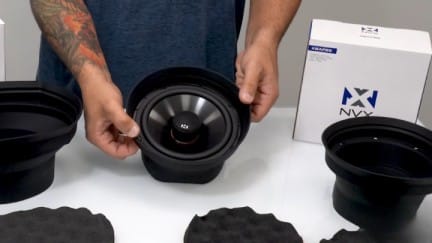
Another way to protect your car speakers from water damage is to use speaker covers. Speaker covers are made from waterproof materials that protect the speaker cones from water and other elements. They’re easy to install and available at most auto parts stores.
Keep your car’s interior dry:
To protect your car speakers from water damage, keep the inside of your car free from moisture. Water can enter the speaker system through the door seals or the ventilation system. It would be best to use a dehumidifier or an air conditioner to dry your car’s interior. You should also avoid driving in heavy rainstorms or through puddles of water.
Store Your Speakers Inside:
If you are not using your car speakers, it is best to store them indoors. This will prevent them from being exposed to the elements and extend their lifespan.
Use a Dehumidifier to protect your car speakers:
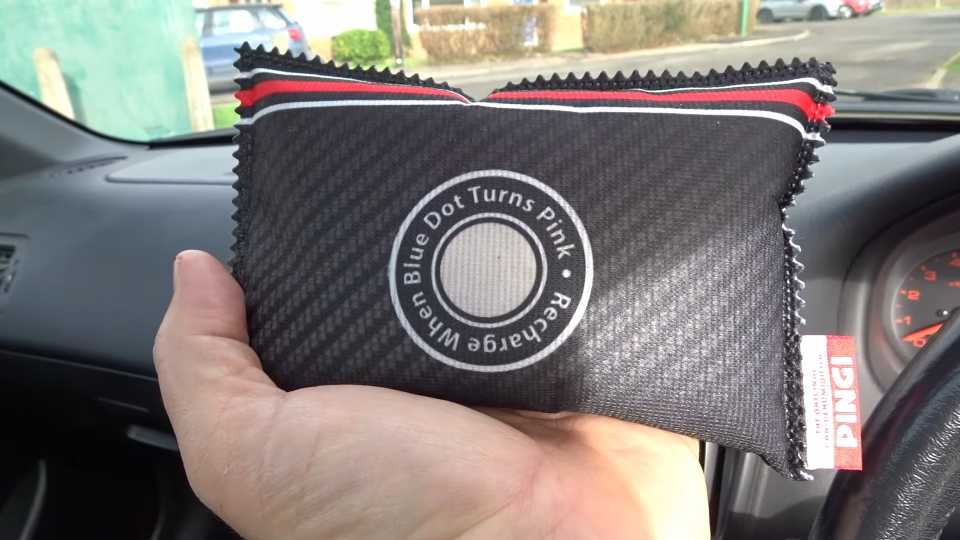
If you live in an area with high humidity, consider using a dehumidifier in your car. By removing moisture from the air with a dehumidifier, you can stop any water damage that would otherwise ruin your car speakers.
Don’t use your speakers while it’s raining:
It is best to avoid using your car speakers in the rain. If you must use them, keep them covered and dry.
Cleaning and maintaining your door seals:
Keeping your door seals clean is one of the most effective ways to avoid water damage to your vehicle speakers. Over time, door seals can become clogged with dirt and debris. This can create a gap that allows water to enter the car. It would be best to clean your door seals regularly with a soft cloth or brush.
Use High-Quality Speakers:
Another way to protect car speakers from water damage is to use good-quality speakers. Cheap speakers are more likely to rust or corrode when exposed to water. Investing in a good-quality speaker will help to ensure that the speaker lasts longer and sounds better.
Use Foam Baffles to protect your car speakers:
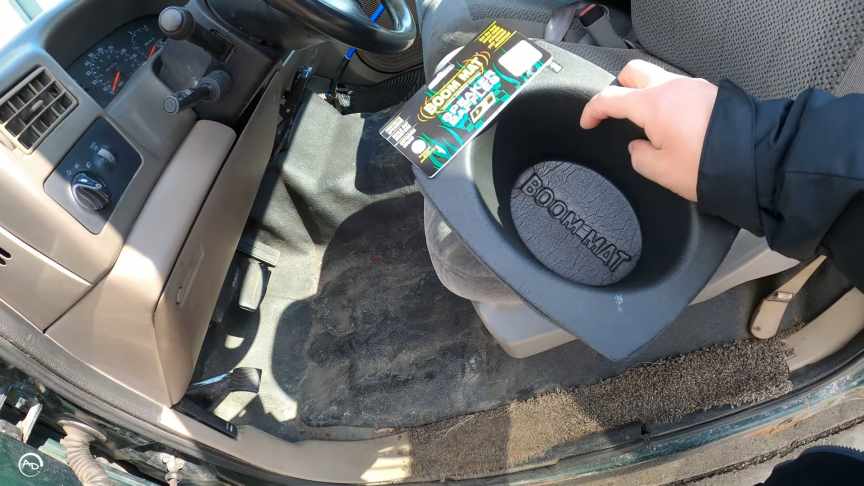
Foam baffles can be added to the speaker system to help protect car speakers from water damage. Baffles are placed over the speaker grilles and help to keep water out. They are simple to prepare and install, and they are pretty cheap.
Use A Moisture Barrier:
A moisture barrier can be added to the car to help prevent water from reaching the speaker system. Moisture barriers are waterproof and can be placed on the floor, doors, or trunk. This will help to keep water from seeping in and reaching the speakers.
Use the aluminum sheet to protect your car speakers from water damage:
An aluminum sheet can be placed over the speaker system to protect car speakers from water damage. The aluminum sheet will reflect the water away from the speakers and help to keep them dry.
Use cabin filter:
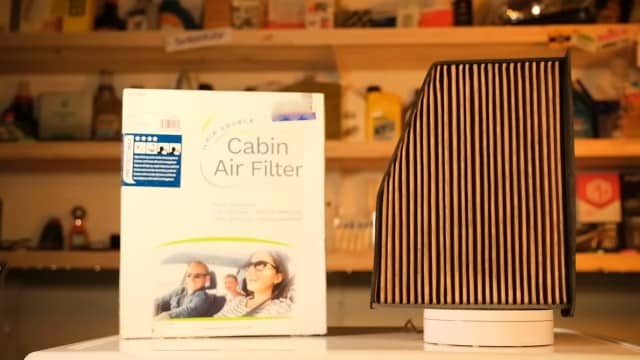
A cabin filter is one of the best ways to protect your car speakers from water damage. These filters are designed to trap moisture and debris before it has a chance to enter the vehicle. They are a budget-friendly and effortless way to protect your valuable belongings.
Use MDX or MDF:
Another way to protect car speakers from water damage is to add MDX or MDF board around the speaker. This will help seal cracks or openings and prevent water from seeping in. It is important to ensure that the board is properly sealed, so it does not come loose and allow water to enter.
Use Rubber Speaker Protectors:
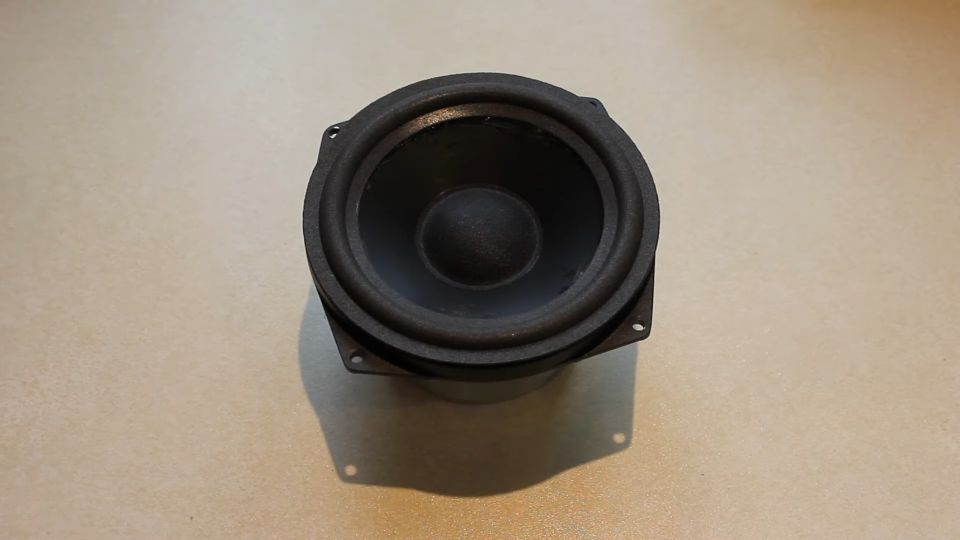
Another option to protect car speakers from water damage is using rubber speaker protectors. These covers fit snugly over the speaker grilles and help to keep water out. They are easy to install and can be found at most auto parts stores.
Adding plastic envelopes and waterproof enclosures for your products:
Another way to keep car speakers safe from water damage is to use plastic envelopes or waterproof enclosures for your products. Keeping moisture and debris away from the speaker cones and electrical components will help them last longer.
Add A Dura Seal:
Dura Seal is a clear polymer protectant that can be sprayed on car speakers to create an invisible barrier against water. It is available in various formulations, so be sure to choose one specifically designed for use on car audio equipment.
Use Polymer Protectant:
Polymer protectants are similar to Dura Seal in that they form an invisible barrier against water. They also have the advantage of repelling dust and dirt. This can help keep your car speakers clean and free of debris that can cause sound quality issues.
Use Spar Varnish Coats:
Varnish is a protective covering that is commonly applied to boats. However, it can also be used on car speakers to create a waterproof barrier. Spar varnish is available in clear and tinted formulas, so you can choose the option that best suits your needs.
Use Xtc Rain Hats:
Xtc rain hats are designed to fit over the top of car speakers to protect them from the elements. They are made from durable PVC and feature a water-resistant coating. Xtc rain hats are available in various sizes to fit most car speaker models.
Use High Gloss Polymer:
High gloss polymer is a clear, protective coating that can be sprayed on car speakers to create a waterproof barrier. It dries to a high shine and will not yellow or crack over time. High gloss polymer is available in aerosol cans or larger bulk containers.
Do waterproof speakers make music sound good?
Because numerous elements influence speaker quality, providing a simple answer is challenging. In general, waterproof speakers should sound as good as any other type of speaker. However, when choosing waterproof speakers, there are a few things to remember:
First, remember that not all waterproof speakers are created equal. Some speakers, such as marine or weather-resistant speakers, are designed for use in specific environments. Because they are not meant to be used in a vehicle, these speakers may not sound as good as other types of speakers.
Second, keep in mind that the size of the speaker is important. Smaller speakers may not sound as good as larger speakers because they cannot produce as much sound.
Third, the quality of the speaker’s construction is important. Some speakers are made with cheaper materials that do not produce good sound quality. Be sure to read reviews of the speakers you are considering to ensure you get a quality product.
What makes a speaker waterproof?
Waterproof speakers are made with special materials that resist water damage. The speaker’s cone and surround are usually made from synthetic materials, such as polypropylene or PVC. The speaker’s frame and magnet are also usually made from waterproof materials.
Some manufacturers add a waterproof coating to the speaker’s cone and surround to protect against water damage. This coating is usually a clear polymer that helps the speaker resist moisture.
Is it okay to use waterproof speakers in my car?
Yes, you can use waterproof speakers in your car.
- First, ensure the speakers are properly secured and will not move around while driving.
- Second, be aware of the sound quality of the speakers. Some waterproof speakers may not have the same sound quality as regular speakers.
- Finally, ensure the speakers are compatible with your car’s audio system.
Waterproof speakers are a great way to protect your investment and enjoy your music. Just research before purchasing to ensure you get the best possible product.
FAQ
Are Subs waterproof?
Most subwoofers are not waterproof and can be damaged if they get wet. However, there are a few exceptions. Some companies make subwoofers that are specifically designed to be used in wet environments, and these subs are typically water-resistant or even waterproof. Additionally, some aftermarket enclosures are made from water-resistant or waterproof materials, so if you have a subwoofer that doesn’t have a water-resistant enclosure, you can purchase an aftermarket enclosure that will protect your sub from moisture.
What are the consequences of water damage to speakers?
Leaving moisture on the speaker’s surface may cause it to freeze and malfunction. Consequently, if your speaker falls into water or any other liquid, unplug it and remove the batteries immediately. If possible, dry the exterior of the product with a soft cloth. Do not use an external fan or blow dryer, as this could damage sensitive components.
If the product is still wet, do not try to turn it on, as this may cause an electric shock. Take it to a qualified shop for further analysis.
Is it possible for rain to harm your car speakers?
Your car speakers stop working after it rains for one of several reasons:
1. The water damages the speaker drivers, making them unable to produce sound.
2. The water gets into the wiring, causing a short circuit.
3. The water creates a conducting path between the positive and negative terminals of the battery, which can fry the amplifier.
4. Rust forms on the metal parts of the speaker system, which impedes their movement and reduces sound quality.
Related Posts